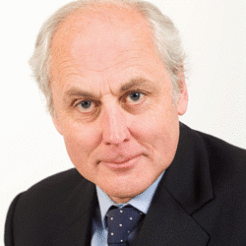Lord Hodgson has said that he still receives regular feedback from a public frustrated about both the charitable sector’s fundraising practices and the lack of an outlet to express its dissatisfaction.
Speaking at the All-Party Parliamentary Group on Civil Society and Volunteering yesterday, Hodgson revealed that he gets emails every week long after he conducted his review of the Charities Act 2006.
“When I started my review, I didn’t expect to find the degree of unhappiness about how funds are raised,” he said. “Fundraising remains an issue, and the public doesn’t feel the sector has responded to its disquiet in a cohesive and coherent way. People feel it ‘passes the parcel’.”
Hodgson said that members of the public feel overwhelmed by all the fundraising methods charities use, from ‘chuggers’ to direct mailing and phone calls.
He suggested that people would welcome a straightforward method of venting their complaints: “I still get three or four emails a week months after I finished my review, people saying ‘Have you heard about this? Do you know about that?’ The public want one number, one email they can go to with their complaints where they know they will be answered.
“The sector needs to get together to get a coherent process the public can understand is working, and [make it aware] how the public can receive advice.”
The remuneration issue
Hogdson said he feels this would be essential for maintaining public confidence in the sector, and also brought up the oft-raised issue of the public’s trepidation about remuneration in charities. “There must be education if the sector is to have public trust and affection,” he warned.
Rhodri Davies, head of policy and campaigns at the Charities Aid Foundation (CAF), was one of three speakers at the meeting, and he agreed with Lord Hodgson that anything that could endanger public trust is a concern.
He said: “I think there is a conversation that needs to be had about the balance between the potential short-term gains of some fundraising methods – and there is evidence that they do work, they do bring money in – and if that in the long-term they damage the public’s trust. What is the cost to benefit analysis of that?”
Davies also stressed that there is an education issue about explaining to the public where its money goes and why that is an appropriate use: “People often raise the issue of administration costs, as if that is a great way to tell the difference between a ‘good’ and a ‘bad’ charity. I’m very concerned about that.
“It fails to make the distinction between a charity that does very good work and spends a reasonable proportion on necessary admin, and a poor charity that has little or no impact and spends very little on admin.”
Impact reporting is key
Davies concluded that this was all a symptom of charities not always being able to demonstrate their impact tangibly, which he said would make the public happier that charity money was being well spent.
The other two speakers at the APPG meeting agreed that demonstrating impact was at the core of the issue. Lily Caprani, director of communications and policy at the Children’s Society, said that the sector “needs to take responsibility for not being especially good at reporting impact in a meaningful way”.
And chief executive of Catch22 Chris Wright backed up the idea that charities need to educate and inform the public about exactly what they do. He pointed out that people have a right to know where their tax money is being spent, especially in the case of charities delivering public services.









